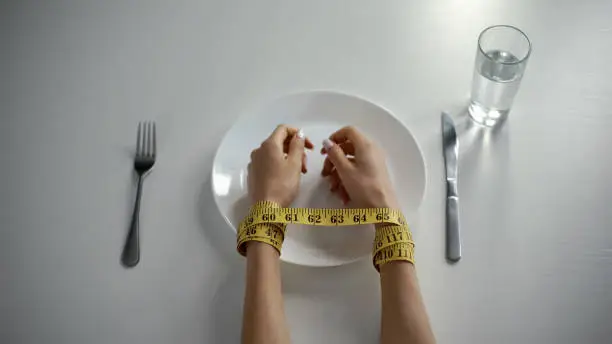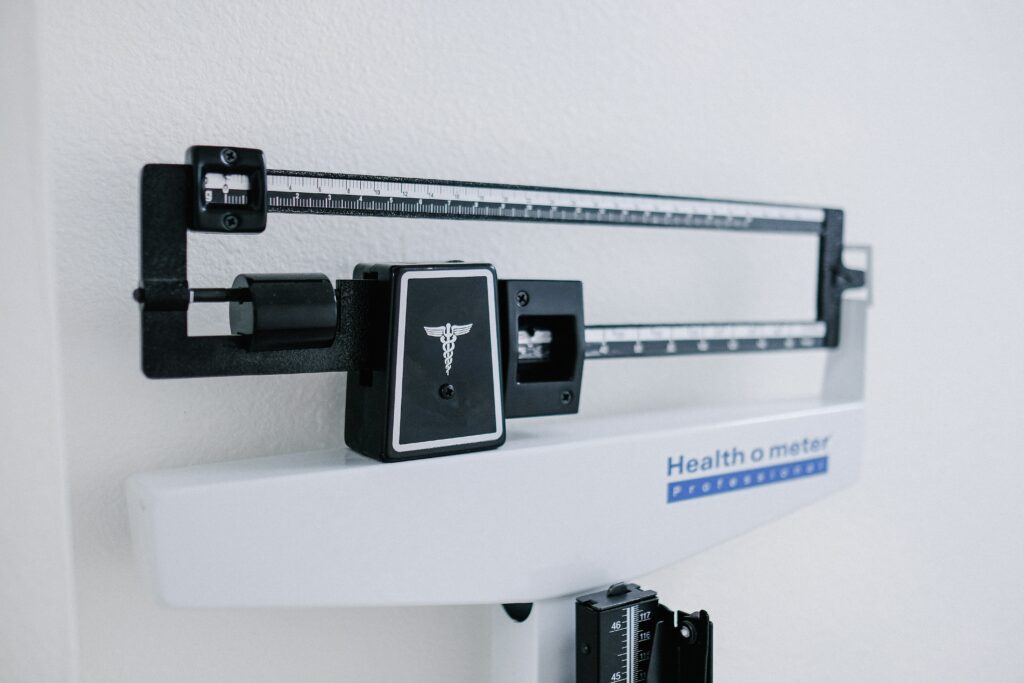Recognizing the need for eating disorder treatment can be challenging, as individuals often struggle with denial, shame, or a lack of awareness about the severity of their condition. However, there are several signs and indicators that may suggest you could benefit from professional help for an eating disorder:
1. Distorted Body Image: If you have a persistent and distorted perception of your body, believing you are overweight even when you are underweight or at an appropriate weight for your body type, this could indicate that your perception of your body is being influenced by a more serious disorder

2. Preoccupation with Food and Weight: If thoughts about food, calories, weight, and body shape consume a significant portion of your day and interfere with your daily activities, relationships, and overall quality of life, it might be a sign of an eating disorder.
3. Unhealthy Eating Behaviors: Engaging in restrictive eating, binge eating, purging, or other unhealthy behaviors such as excessive exercise or laxative misuse can indicate a problem that professional help could better help assess and work through.
4. Changes in Eating Habits: Drastic changes in eating patterns, such as avoiding meals, skipping entire food groups, or sudden shifts between periods of overeating and undereating, can signal you may be struggling with an eating disorder
5. Physical Health Issues: If you’re experiencing physical problems such as rapid weight loss, electrolyte imbalances, dizziness, fatigue, hair loss, or gastrointestinal issues, it’s important to seek help as these could be signs of a serious health concern.

6. Emotional Distress: Feelings of anxiety, depression, guilt, shame, or worthlessness related to your eating habits or body image can indicate an unhealthy relationship with food.
7. Social Isolation: If you’re withdrawing from social activities, avoiding friends or family gatherings, or isolating yourself due to concerns about food, eating in public, or body image, it’s a sign that your eating behaviors might be impacting your social life.
8. Difficulty Concentrating: If your thoughts about food and your body are so consuming that they interfere with your ability to concentrate, perform tasks, or engage in everyday activities, it’s time to seek help.

9. Physical Signs: Cold intolerance, thinning hair, brittle nails, frequent lightheadedness, and other physical symptoms can indicate malnutrition and warrant professional evaluation.
10. Difficulty Changing: If you’ve tried to change your eating habits on your own and found it difficult or impossible, professional assistance can provide the necessary guidance and support.
11. Negative Impact on Relationships: If your eating behaviors are causing strain in your relationships with friends, family, or partners, it’s a sign that your eating disorder is affecting your life beyond just your relationship with food.
12. Intense Fear of Weight Gain: If you have an intense and irrational fear of gaining weight, which affects your eating behaviors and emotional well-being, it’s an important indicator that you may need treatment.
If you identify with several of these signs or if your eating habits and thoughts are causing distress or interfering with your daily life, seeking professional help is strongly recommended. Consulting a mental health professional who specializes in eating disorders can provide you with a comprehensive evaluation and guide you toward appropriate treatment options. Our providers are here to help with early intervention and creating a treatment plan that can help significantly improve the chances of recovery from eating disorders.
FIND FREEDOM FOR EAST DISORDERS FOR WOMEN IN BROOKLYN & MANHATTAN, NEW YORK
At Manhattan Wellness, we understand that your relationship with food can be complicated. With all the messages and images we are bombarded with on social media, it can be difficult to navigate a positive relationship with food. That’s why our female therapists want to support you in tackling your eating disorder with compassion and care. Let us help you create an empowering narrative that will benefit all aspects of your life. If you are interested in beginning counseling for women:
- Submit a Contact Form or Email Us at hello@manhattanwellness.org
- Learn More About Our Team and Our Areas of Expertise
- Begin Seeing Yourself in a Whole New Light!
OTHER THERAPY SERVICES AT MANHATTAN WELLNESS IN MANHATTAN, WESTCHESTER, BROOKLYN & THROUGHOUT NEW YORK
Our therapists understand that life in New York City is not always easy, and that other issues can come up along the way. To better support you, we offer a variety of services to cater to your individual needs. The therapy services we offer are Therapy for Self Esteem, Anxiety Treatment, and therapy for dating and relationship issues. As well as therapy for college students, support for maternal mental health, body image therapy, and so much more. Are you feel like you’re not living the life you want and need to make changes? Let’s talk about it.
